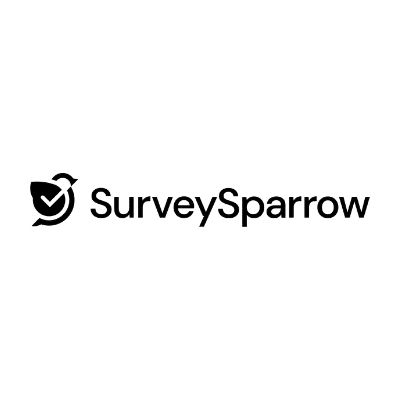Why Going Fractional Helped Me Keep More of What I Earned (and How You Can Too)
When I first stepped into Fractional work, I knew I was trading a steady paycheck for more flexibility, autonomy, and higher income potential. What I didn’t realize right away was how much more I could keep, simply by understanding how taxes actually work when you’re self-employed.
This post isn’t tax advice. I’m not a CPA. But I’ve learned a lot over the last few years, and if you’re doing Fractional work, consulting, or running a solo business, there’s a good chance you’re leaving money on the table. Especially if you’re still thinking like a W2 employee.
I want to walk you through some of the basics that helped me take home more of what I was making, and how to avoid common mistakes when you start treating yourself like a business.
Also, if you want help navigating this, I hosted a webinar with my partners at Uprise, they specialize in tax and financial planning for independents like us. You can watch the replay here and they’re offering Hey CMO readers 20% off if you sign up.
The $60K Rule You Should Know
Many tax experts recommend considering an S-Corp election once you’re earning around $60,000 or more in net self-employment income. At that point, the potential tax savings usually outweigh the extra costs of payroll, bookkeeping, and compliance.
For some, waiting until closer to $80K makes sense, especially if your expenses are lower or your setup costs are higher. The exact number depends on your situation, but the principle is the same: once you cross that threshold, the savings can be significant.
I started with a single-member LLC and added the S-Corp election later. That one decision easily saved me thousands of dollars in my first year alone.
If you’re already operating as an LLC but haven’t made the S-Corp election, it’s not too late. In many cases, you can still file the election and even backdate it, provided it falls within IRS guidelines.
How Business Owners Save on Taxes
There are three big areas where you get an advantage once you’re officially set up as a business.
1. You Can Deduct Business Expenses
Everything I use to run my Fractional business, project management tools, coworking space, even client gifts, becomes a tax-deductible expense. With the right setup (and automation), you’re paying for these with pre-tax dollars instead of post-tax income.
Even $200/month on a coworking space feels lighter when you’re not taxed on it first. Those small shifts add up to real savings over time. Our expert Tax & Finance Automation support makes it seamless, tracking, categorizing, and optimizing your expenses so you can focus on growing your business.
And yes, it’s also the perfect excuse to open a business credit card and start earning points on things you’d already be buying anyway.
2. You Can Reimburse Yourself
I work from home often, so I reimburse myself a portion of my rent and internet costs through the business. I also reimburse for my cell phone and mileage when I travel to meet clients.
The IRS allows these reimbursements as long as you follow the guidelines and keep clear records. It’s just another way to shift your spending from post-tax to pre-tax dollars, and it adds up fast.
3. How S-Corps Save You Money
This is the big one. When you elect to be taxed as an S-Corp, you’re allowed to pay yourself in two ways:
Salary – taxed like normal W2 income.
Profit distributions – not subject to self-employment tax.
That means instead of paying self-employment tax on 100% of your income, you only pay it on the portion that is considered a salary. The rest comes to you without the extra 15.3% tax that covers Social Security and Medicare.
The IRS requires you to pay yourself a “reasonable salary” based on the work you do, your industry, and comparable roles. Once you’ve covered that, the remaining profit can be distributed, often resulting in significant savings.
For example, if you’re earning $200,000 and set a reasonable salary at $100,000, the other $100,000 could come to you as a distribution, potentially saving you over $15,000 annually in payroll taxes.
How to Set It Up Without the Headache

If you already have a personal accountant, ask them if they can handle the LLC + S-Corp setup and ongoing support. Just make sure they’re familiar with the needs of solopreneurs.
If you want a done-for-you option, I recommend Uprise. They’re focused on freelancers and Fractional execs, and they walk you through the setup and handle all the paperwork, bookkeeping, quarterly payments, and compliance. You can get 20% off your first year through our partnership. Watch the webinar replay or set up a free consultation with a Certified Financial Planner courtesy of Hey CMO. Just mention us to ensure you get a 20% discount for any services purchased.
Let’s Talk Retirement Too
Once you’ve set up your business, you also open the door to better retirement options. Most W2 jobs offer a 401(k) with limited choices, but as a business owner, you can open a Solo 401(k) and contribute even more.
I went with a platform called Carry because it’s simple to use and allows for more flexible investing. It even supports advanced strategies like the Mega Backdoor Roth, which gives you tax-free growth on more of your income.
What I Want You to Take Away From This

You don’t have to become a tax expert, but you do need to start thinking like a business owner.
Here’s a quick recap:
- Set up an LLC + S-Corp if you’re earning $60K or more
- Track and deduct legitimate business expenses
- Reimburse yourself for home office, phone, internet, and more
- Pay yourself a reasonable salary and take the rest as profit distributions
- Open a Solo 401(k) and contribute as your business grows
It’s not just about saving money. It’s about creating a system that supports your long-term success.
Need help getting started? Watch our webinar with Uprise, set up a free consultation with a Certified Financial Planner, and use code HEYCMO to get 20% off their services. You’ll get guidance, clarity, and peace of mind, and you might even start enjoying this part of the business.












